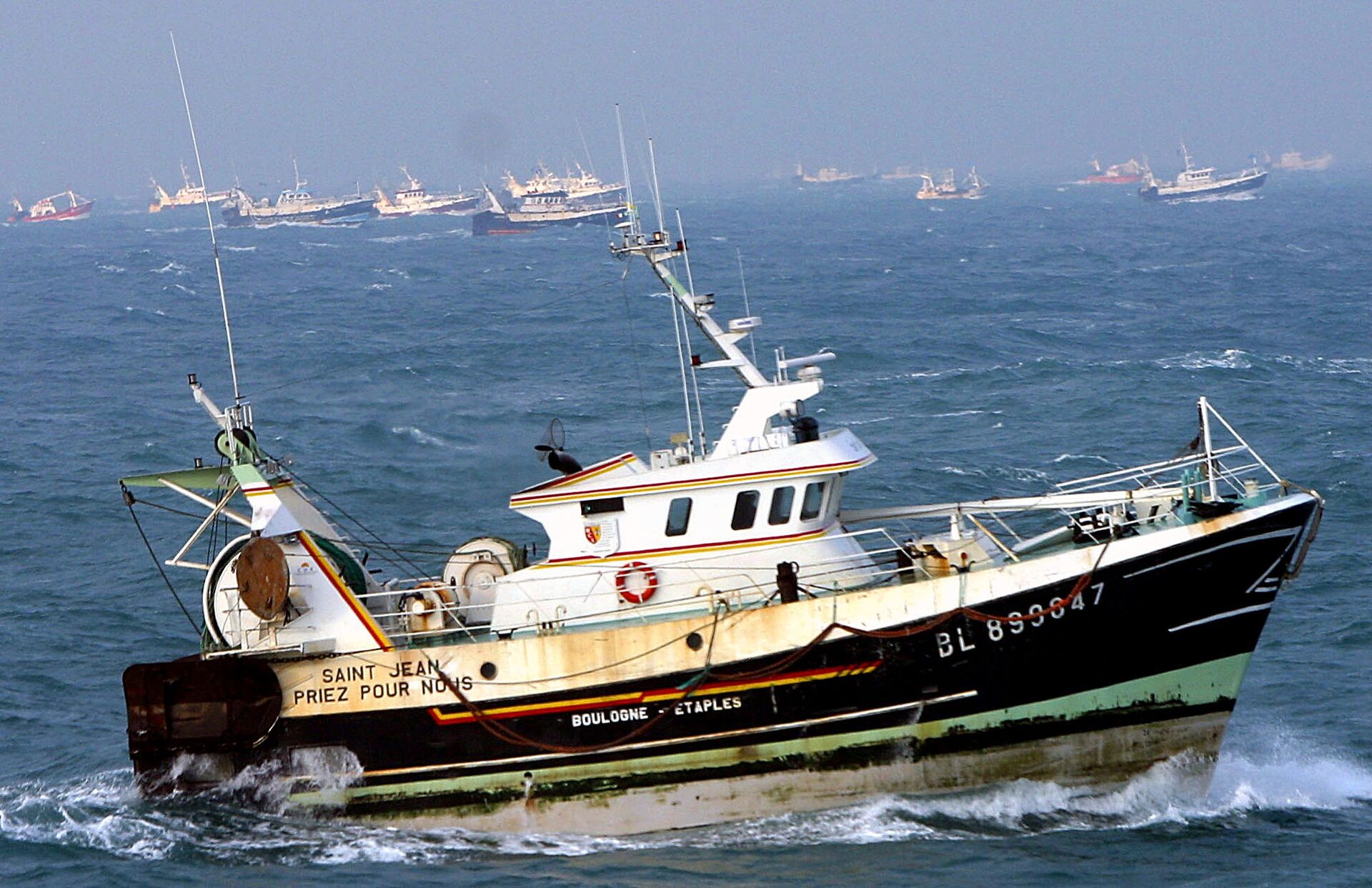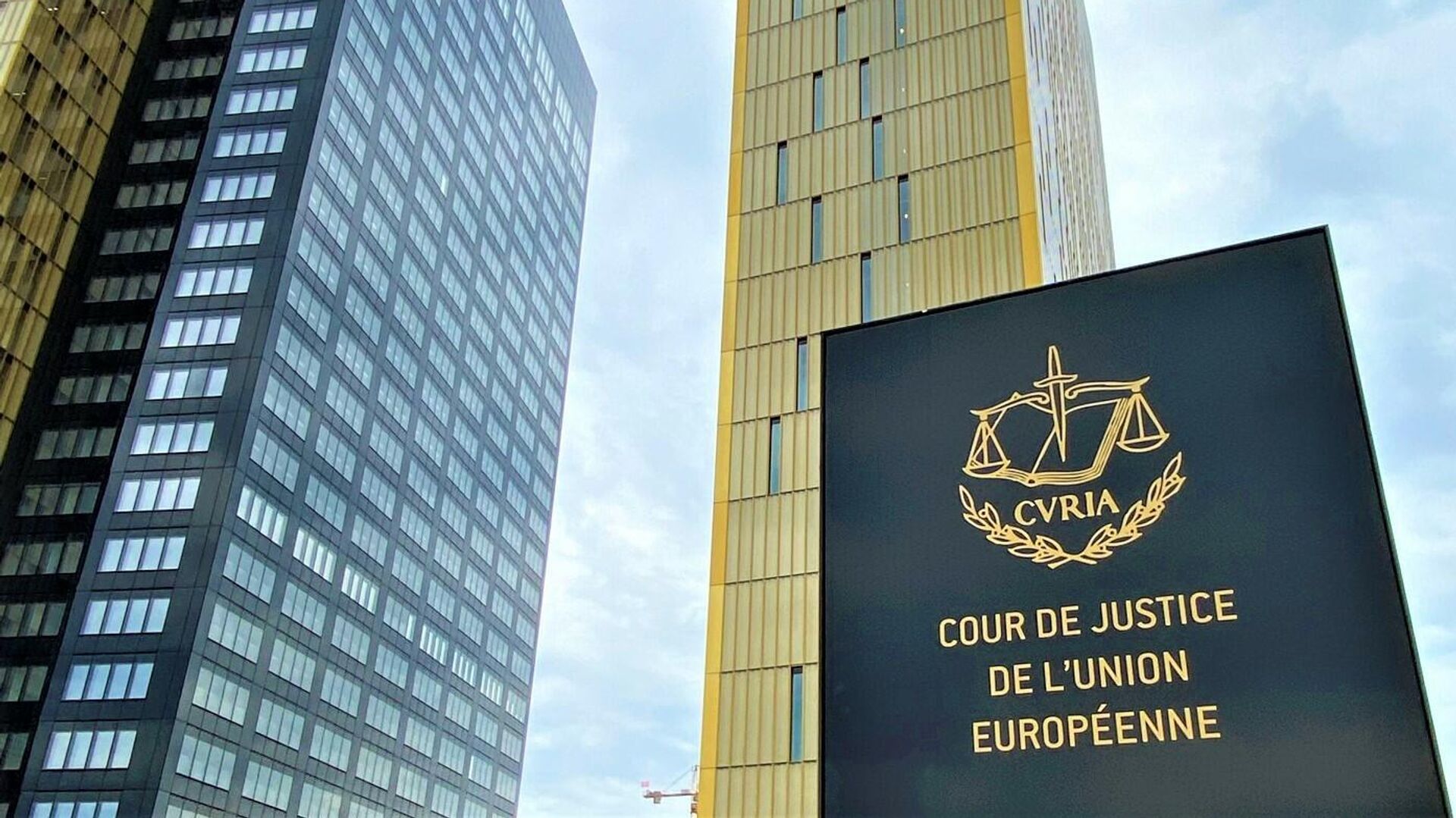EU Court of Justice Strikes Down Morocco Trade Deal over Western Sahara Exports
23:48 GMT 29.09.2021 (Updated: 12:22 GMT 09.02.2023)
Subscribe
The European Union Court of Justice has struck down a trade deal with Morocco it says didn’t have consent from the Polisario Front, which has declared Western Sahara to be an independent Saharawi republic. The court previously ruled against the deal in 2018, but the EP passed it anyway, claiming it had found a loophole.
In its Wednesday ruling, the EU’s top court pointed to a ruling dating to 2016, which had said a trade deal could only include products from Western Sahara if the people of the territory consented to it and benefited from it.
Politico reported in 2018, as the draft text was being negotiated in Rabat, that the Moroccan government had invited Saharawi civil society groups to Rabat in February in an attempt to establish consent. However, representatives from the Polisario Front said they were not invited to the meeting.
The Popular Front for the Liberation of Saguia el-Hamra and Río de Oro (POLISARIO) was formed during the era of Spanish colonization to fight for an independent republic for the indigenous Saharawi people. After the Spanish left in 1975, Polisario continued to fight the Moroccan and Mauritanian forces that tried to claim the territory for their own. In a 1991 peace deal, the United Nations recognized Polisario as the legitimate representatives of the Saharawi people.

French fishing boats (File)
© AP Photo / MICHEL SPINGLER
The EU court made this central to its ruling on Wednesday, noting that due to Polisario’s absence from the negotiating table, “the steps taken by the EU authorities before the conclusion of the agreements at issue cannot be regarded as having secured the consent of the people of Western Sahara.”
According to RFI, the deal is valued at some €153 million over a four-year period. According to the Associated Press, the collapse of the deal will deprive Morocco of about €52 million a year on fishing alone. Three-quarters of the 128 EU fishing boats licensed to ply the waters off Western Sahara come from Spain.
“The EU ignored both its own Court and the only party that lawfully ought to have a decisive voice in this matter: the people of Western Sahara,” said NGO Western Sahara Resource Watch (WSRW) in a statement. “Today, the EU Court of Justice righted that wrong.”
“This is a victory for justice, and for the people of Western Sahara. We hope that EU Member States will now finally abide by the Court’s rulings, and exclude Western Sahara from the broad scope of the Union’s relations with Morocco. It is high time for the EU to stop being part of the problem in the last colony in Africa, and to become part of the solution,” WRSW chief Sylvia Valentin said in the release.
Genevra Forwood, an EU lawyer who represented Rabat, told Morocco World News they would appeal the verdict.
“There is no legal impact on the agricultural and fisheries agreements between Morocco and the EU,” she said.
Indeed, the ruling provided for the agreements to continue for a “certain period” to preserve the “external action for the European Union and legal certainty of its international commitments.”
The Collective of Sahrawi Human Rights Defenders (CODESA), a non-governmental organization that advocates on behalf of Saharawi activists and journalists, welcomed the court ruling.
From the #saharawi refugee camps, A message of gratitude to the #European_Court . Desde los campamentos de refugiados saharaui, mensaje de agradecimiento al #Tribunal_europeo . pic.twitter.com/0qkSilwRoo
— Amb. Oubi Bachir (@oubibachir) September 29, 2021
“It is time for the EU to demonstrate that it does not see itself as above the law and to have the courage to maintain this ruling through its engagement with its counterparts,” read a statement given to Sputnik, urging the “EU member states, Council, and Commission to uphold the integrity of its institutions and legal framework.”
The activists called on the EU to give “clear instructions calling for the withdrawal of companies who continue to illegally trade and benefit from the natural resources of Western Sahara in violation of this ruling” and to “immediately engage with the POLISARIO Front in a responsible dialogue to secure the consent of the Saharawi people.”
“Refusing to implement this ruling would grant Moroccan occupying forces the green light to continue committing crimes against humanity and violating international law,” they added.
The warm waters off the coast of Western Sahara hold some of the world’s most fertile fisheries, and are believed to hold petroleum reserves under the seafloor. In addition, while the territory’s terrain is mostly barren, significant phosphate deposits exist in the north, which holds the world’s largest such mine at Boucraa.
A 2018 report drafted by the European Parliament’s fisheries committee noted that “more than 90% of the catch by the EU fleet is taken in the waters adjacent to Western Sahara.”
Further, New York-based NGO Human Rights Watch noted in a February 2019 letter to MEPs that “in practice, in order for Morocco, as an occupying power, to lawfully exploit Western Sahara’s resources, it would have to establish a fund with transparent bookkeeping that shows the resources utilized or exported, the revenue derived, and the channelling of those revenues to the sole benefit of the people of Western Sahara.”


